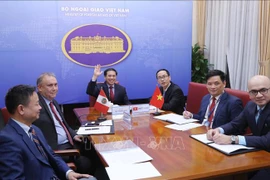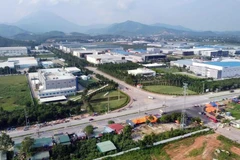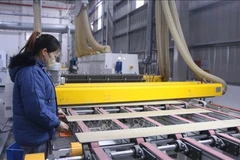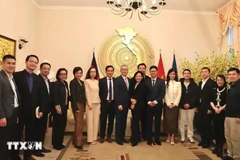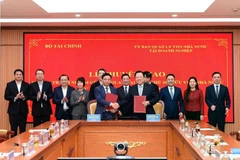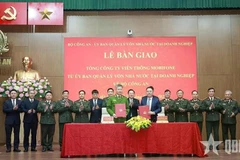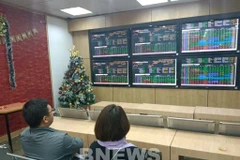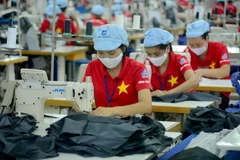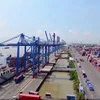With the ratification, Vietnamese goods willhave more chances to penetrate the Peruvian market in the time ahead.
According to the Vietnamese Ministry of Industry andTrade, Peru has joined most of international and regional institutions such asthe WTO, the Asia-Pacific Economic Cooperation (APEC), the Pacific Alliance(PA) and the Southern Common Market (MERCOSUR), and signed 27 free tradeagreements with 55 countries.
Trade between Vietnam and Peru increased from 284.96million USD in 2014 to 422.73 million USD in 2019.
Last year, the value stood at only 391.17 million USDdue to the impact of the COVID-19 pandemic. However, the bilateral trade grewstrongly in the first half of this year to reach 278.27 million USD, up 78.7percent year-on-year.
Notably, Vietnam’s exports to Peru hit 242.49million USD, representing a rise of 103.6 percent.
Vietnam’s major exports to Peru include phones andelectronic components, computers and electronics, footwear, clinker and cement,garments-textiles and aquatic products. Meanwhile, Peru ships fish powder, antimonyand minerals to the Southeast Asian nation.
Peru has been viewed as a potential market that matchesVietnamese firms’ capacity and scale as up to 75 percent of Peruvian export andimport companies are small and medium-sized ones.
Peru commits to removing up to 81 percent of taxlines right after the CPTPP comes into force, and 99.4 percent of tax lines inthe 17th year after the deal takes effect.
Notably, exterior wood and agricultural productslike cashew nut, tea, pepper, fruit and vegetables, and certain coffee productswill enjoy a zero percent tariff after the deal comes into force, whilegarments-textiles and footwear are subject to the zero percent tariff in the 16th year.
The ministry suggested local firms optimiseopportunities presented by the CPTPP to step up exports to Peru, improve theircompetitiveness and put forth sustainable export strategies.
The Peruvian Congress has recently ratified theCPTPP, which was signed in March 2018, becoming the eighth member country to ratify thedeal. It will officially take effect in Peru 60 days after the country completes the registration of the ratification with New Zealand, the depository for the TPP. /.



